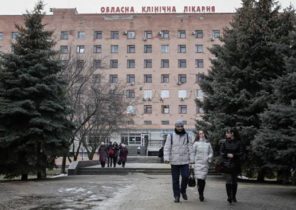“Pressure increased”: Moscow insists on its
Belarus and Russia last year held talks to deepen economic integration, among other things were discussed including the development of a common tax code. Last fall the then Minister of Finance Maxim Ermolovich said publicly that “to refuse to tax sovereignty, the country will not, at least unilaterally”.
This spring, on the background of the pandemic coronavirus substantive negotiations between Belarus and Russia on mechanisms to deepen economic integration was not conducted. “Now the parties are before this,” said may in an interview with BelaPAN, one of the participants in the negotiating process, referring to the complex epidemiological situation in the two countries.
In June, Belarus and Russia when the peak of the pandemic had passed, returned to the discussion of the roadmap for deepening economic integration, and last week Russian Prime Minister Mikhail Mishustin de facto linked to the conditions of Russian energy supplies to Belarus with the two countries adopt a uniform tax legislation.
“If we are together on these cards will create a common space, in particular, take — with exceptions perhaps — a single tax code, when we can unify our stakes and approaches, we will be able to speak in particular about the mechanism of pricing energy already, as in principle offer our Belarusian partners,” — said Mishustin, speaking in the Duma.
It turns out that Russia not only offers to develop a unified tax code, and already sees the specific mechanisms how to combine fiscal systems of the two countries.
The Ministry for taxes and levies of Belarus last week sent a letter to the government, which said that the Russian government “actively promoting proposals” on the transfer of the Belarusian information systems applied in Belarus in the sphere of fiscal control, on the digital platforms of Russia.
Given the number of “critical risks”, the Belarusian side refused from this proposal, however, “currently, the pressure from the Russian side has intensified,” reads the letter, MNS, and therefore, the Ministry prepares for the government comprehensive impact assessment of the implementation of fiscal initiatives in Russia.
What are the risks see the Belarusian government in the Belarusian translation of information systems in the sphere of fiscal control on the Russian platform?
MNF-Belarus sees a threat that “on the basis of access to information throughout the chain of movement of goods, including volumes of import and export of goods, the participants of the turnover, value added, level of margins,” the Russian government and private Russian companies recognize commercial information about the financial and economic activities of Belarusian enterprises.
In addition, MNF-Belarus sees a risk that in the event of a transfer of the Belarusian fiscal information systems on the Russian platform Moscow appears “the technical possibility of blocking” undesirable “Belarusian participants of the market.”
The path to loss of sovereignty
Independent experts support the position of the Belarusian authorities, and I believe that to unite the Belarusian fiscal system of Russian is not necessary.
“I advocate the tax sovereignty of Belarus and I believe that the implementation of the concept, which was proposed by the Russian side is a step to partial loss of tax sovereignty. So are proposals for the transfer of the Belarusian system of fiscal control on the Russian platform negatively,” — said in a comment to BelaPAN Deputy Chairman of the Belarusian scientific and industrial Association Sergey Varivoda.
A similar opinion is expressed by other experts.
“The Russian proposal to transfer all of our electronic tax administration on the digital platforms of Russia contradicts the national interests and national development strategies,” — said in an interview with BelaPAN, the Chairman of the Club of financial Directors Andrey Karpunin.
No country, he said, no need to tax and financial information about the activities of its enterprises is stored and processed on the territory of another state.
“The more that Belarusian and Russian companies are competing in the industrial sector, and the procurement of raw materials, components, cost of sales of manufactured products. If to access this information and are competent to perform, any Belarusian enterprise will become transparent and vulnerable,” said Karpunin.
He is convinced that the transition of Belarus to the Russian system of tax administration is fraught and other negative consequences.
“Belarus and Russia have fundamentally different systems of tax administration, and by comparing these two systems, both hands on heart I am willing to believe and say that the Belarusian system is much better,” Karpunin says.
He drew attention that the Belarusian taxpayers must work directly with the tax authority.
“In Russia, this interaction occurs through intermediaries, this creates additional technical complexity and require the payment of fees. Therefore, we do not need to go to the Russian system of tax administration”, concluded Karpunin.
Independent experts doubt that the Russian proposals for the unification of the tax systems of two countries will be supported by the Belarusian authorities.
“Such steps can cause public outrage and obviously not to be taken by the Belarusian society. Russia’s proposal to unify the tax systems of the two countries looks like a camouflaged attempt to make Belarus more dependent on Russia economically, and later, perhaps, and politically,” — said Varivoda.
According to the expert, in the interests of Belarus are now we must not discuss the integration of tax systems with Russia, and to increase the competitiveness of the national economy.
“Finance is secondary to the real sector of the economy. We need to conduct an economic policy which would have resulted in a reduction of public debt, efficient allocation of resources and the real competitiveness of our economy. These issues the state now should be the time to ensure a sustainable position of public finances in the future,” concluded Varivoda.







